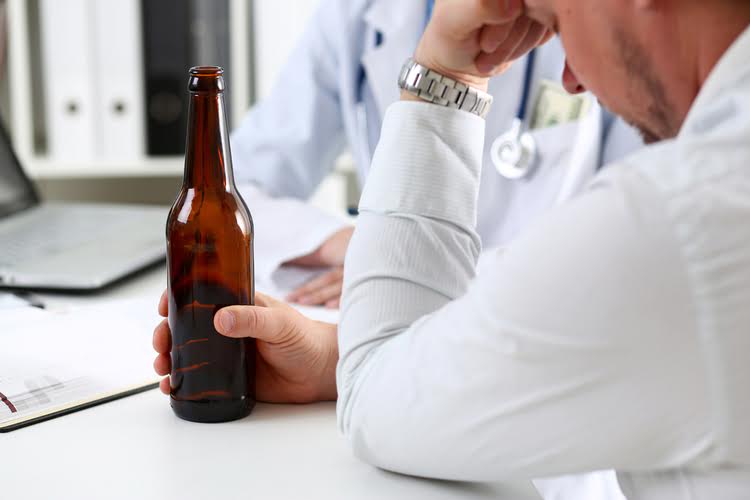In other words, try to drink as much water as possible, because your normal retention rate isn’t going to be what your body’s used to. The key players in mitigating hangover symptoms are DHM (Dihydromyricetin), minerals and vitamins, electrolytes, amino acids, and other compounds that aid in toxin elimination. Unlike water and electrolytes, these essential ingredients are not always readily available for consumption during a night out.
Alcohol’s Influence On Kidney Function

As a result, you not only expel the fluids you consumed in the alcohol but also additional fluids from your body’s reserves, leading to dehydration. Despite common belief, the link between alcohol and dehydration isn’t always straightforward. Some research even suggests that moderate alcohol consumption might not cause significant dehydration in healthy individuals. One study indicates that even with a hangover, people aren’t necessarily clinically dehydrated.

Avoid sugary and caffeinated drinks:
- When we consume alcohol, it affects our breathing pattern and can lead to increased respiration rate.
- Dehydration can also impact heart function, increasing the risk of heart attack or stroke, especially in people with pre-existing heart conditions.
- Not all alcoholic beverages are created equal when it comes to dehydration.
- To give you a clearer picture, here’s a quick summary of how alcohol can throw your body off balance.
- Apps like Reframe provide tools for daily tracking and personalized plans to help manage alcohol consumption.
Alcohol inhibits the release of this hormone, reducing the kidneys’ ability to reabsorb water, resulting in greater fluid loss through increased urination. Alcohol is not just a staple of social gatherings; it also acts as a potent diuretic. When consumed, alcohol increases urine production, accelerating fluid loss and potentially leading to dehydration.
Does alcohol dehydrate you?
Furthermore, chronic dehydration can lead to an increased risk of heart disease and stroke. When we vomit after consuming alcohol, we are not only losing the beverage itself but also essential fluids that are necessary for maintaining hydration levels. This can lead to an increased risk of dehydration, especially if vomiting occurs repeatedly or in large quantities. When you’re drinking more than usual, it’s important to remember to consume alcohol responsibly (for both your health and safety!). Alcohol is a diuretic, which means it moves fluid out of your body and can easily dehydrate you.
- “Ginger can aid digestion and in this way can ease stomach upset,” says Kennedy, who credits alcohol irritating the lining of the stomach as one of the reasons for hangover-related nausea.
- Other lifestyle factors, such as exercise, climate, and medication use, can also impact alcohol’s dehydrating effects.
- Drinking water before consuming alcohol prepares the body for fluid loss.
- By sticking to these tips, you can ensure your body stays hydrated when dealing with the dehydrating impacts of drinking alcohol.
- This strategy helps replace lost fluids and maintains hydration.

She recommends treating beer akin to other sugary or alcoholic beverages—drink it in moderation and always supplement with does alcohol dehydrate you water. Understanding how beer compares to water in terms of hydration provides useful insights into your drinking choices. While both beverages can contribute to your fluid intake, their effects on hydration differ significantly. One of the most restorative hangover remedies you can try is simply to get more sleep.
Increased Urination Frequency
This disruption Twelve-step program exacerbates fluid loss and contributes to dehydration. Yes, even moderate alcohol consumption can lead to dehydration. The diuretic effect of alcohol remains, regardless of the quantity consumed. Yes, excessive alcohol consumption can lead to severe dehydration, which can be dangerous and even life-threatening if left untreated. Because a beer — consumed slowly — is the least dehydrating, it’s easy to jump to the conclusion that liquor is always the most dehydrating alcohol. In fact, a mixed drink can be more hydrating (okay, okay, less dehydrating) than taking a shot.
Learn why alcohol dehydrates your body by affecting hydration levels, fluid balance, kidney function, hormonal regulation, and the gastrointestinal system. The more you drink, the more your body stops producing a hormone called vasopressin. It simply means when you drink excessively, the lack of antidiuretic hormones reduces the ability of your body to hold onto water. As a result, your body loses essential nutrients, and you find yourself with frequent washroom visits.
The same 2016 study from the American Journal of Clinical Nutrition found that milk was more hydrating than water, sports drinks, coffee, tea, and a handful of other common beverages 6. “Essentially, when you’re dehydrated, you’ll feel alcohol’s effects sooner and for longer,” Pfau says. But prolific pee production isn’t the only way alcohol dehydrates you. Alcohol delays stomach emptying, which can cause vomiting, a sure way to become dehydrated 1. But that doesn’t mean you shouldn’t enjoy an adult beverage or two from time to time. Here’s what you need to know about how alcohol dehydrates the body and how to drink responsibly.
